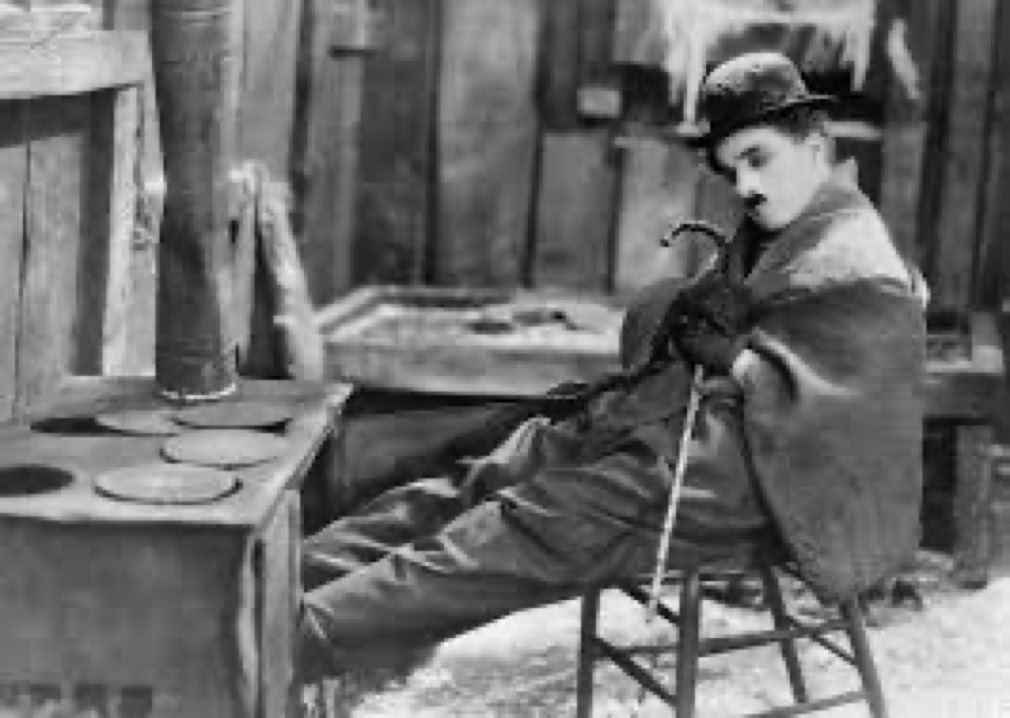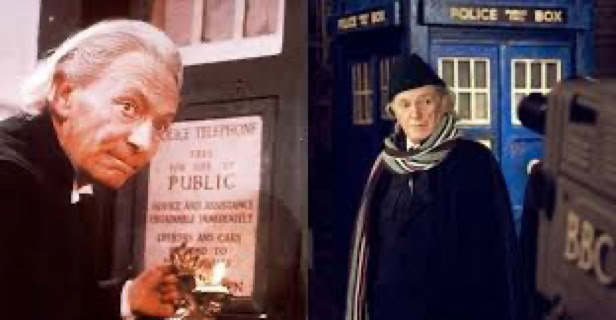
FAME, SEX, SMILES AND RICHES … BUT CHAPLIN STILL CRIED INSIDE

CHARLIE CHAPLIN was one of the world’s greatest entertainers, yet he admitted he cried inside for most of his life — laughter, he said, was his shield for the sorrows he endured. A drunken father; a schizophrenic mother and life in a London workhouse “damaged his soul”.
All this we knew in the Press. But the iconic star later had another shield that he used to protect him from his inner world of despair … sex. He became fabulously rich in Hollywood and when he got power he morphed into a sex predator, according to some historians.
He would show interest in an actress, have a sexual relationship with her, sometimes with the promise of a leading role, and then drop her from the film and his life.
Nothing knew there you might say. Isn’t that what some stars do? But he was known for his attraction to very young, often underage, women, marrying two of his wives when they were 16 years old and actively courting others from as young as 12.
As his fame grew, he was like a child given the key to a candy shop. It was as if he wanted everything the world had to offer after his depressing early life. After his death on Christmas Day, 1977, more untold stories about the iconic star appeared in the Press.
But it wasn’t until the early 1980s that newspapers began to learn about a surrogate mother who took him and his older brother, under her wing when he was about seven and influenced him. Chaplin was to love her all his life and when he achieved wealth and fame, he would send her more money than she knew what to do with, according to the Guardian in the 1980s.
In 1983 Chaplin’s childhood friend, Effie Wisdom, aged 92, who used to play with him in in the street near their home, gave an interview in which she recalled first meeting him when he was five and she was seven, when her aunt became his “foster mother”, as he used to tell her.
“My aunt used to feed him ‘cos there was no social security in those days, no free milk, no children’s allowances, nothing. You never starved and yet you was on the breadline.
“When Charlie’s mother had a nervous breakdown, she asked my aunt: ‘If I have to go away, you won’t let my lovely sons go in an orphanage, will you?’ My aunt told her not to worry she would feed them. She loved them both. From then on, she would even keep them clothed and fed. She became a mother and father to them.”
But Charlie was difficult to handle, she added: “Charlie used to go up Lambeth Walk and pinch. He’d come home with four eggs in his pocket one day. The next day he came home with a pair of boots he’d nicked.”
Her aunt scolded him: “Do you want me to get the police? If you go on doing this, you’ll be locked up. You realise that don’t you?”
“Charlie said, ‘Well, I saw ‘em and I was hungry, so I took ‘em’. He couldn’t send the eggs back. But when the boots came home, she made him take them back.”
Effie was fond of Chaplin. She said: “He’d get an old table, out in the yard next to my aunt’s, and he’d get all the kids in there, and get on it, put an old pair of trousers on, an old coat and waddle about with a stick when he was 12. The kids loved that. He used to fall off the table, then he’d get up and climb on it again.” But she joked: “I never thought he’d get where he got.”
She remembered him writing to her aunt from America, telling her that he would visit her on his return to England: “He said, I’m not like when I left England with nothing. I’m going on to be a rich man.”
She added that on one visit home, Chaplin stayed at the Ritz and turned up at his aunt’s home in a chauffeur-driven Rolls-Royce: The whole street turned out.
“He invited my aunt and my uncle and me to the famous hotel,” she said. “My aunt was thrilled and shy. She’d never been in a place like that and nor had I. They took me. We were spellbound by it.”
The interview was conducted by Kevin Brownlow, one of Britain’s leading experts in silent films and had been stored in the British Film Institute’s archive ever since.
Brownlow said: “We recorded it thinking that people would one day be intrigued by her wonderful memories.”
Chaplin’s parents were music-hall performers, and his mother was abandoned by her husband, Charles. Wisdom recalls how he went off with a chorus girl and his mother Hannah was committed to an asylum.
Chaplin carried a lifelong fear of ending up like her and felt the sadness of his early life deeply. But he always put on a show for those around him.
In 1910, he sailed with the Fred Karno troupe for a three-year music hall gig in America. Another member of the company, Stan Laurel, (of Laurel and Hardy) was with him and said: “Charles put his foot up on the rail of the boat, swung his arm landward in one of his burlesque dramatic gestures, and declared: “America, I am coming to conquer you! Every man, woman, and child shall have my name on their lips — Charles Spencer Chaplin!”
THE SAD DEMISE OF DR WHO STAR
WHO KEPT FORGETTING HIS LINES
WHEN a group of scriptwriters and producers met for an ‘ideas afternoon’ of coffee and biscuits at the BBC in 1963, they could never have guessed that they would be embarking on a journey through time and space in a police telephone box to create one of the best-loved and longest running TV sci-fi programmes.
That day of ‘blue sky’ thinking in the BBC Serials Department, was how Dr Who was born, according to the BBC archives. And the Time Lord who came to Earth to save us from the Daleks was created because the BBC wanted something to stop people switching to ITV after the football results on Saturdays.
But as young script writer Sydney Newman and other BBC staff put their space thinking caps on, their programme nearly became something totally different.
The favourite pitch that day was a series about ‘three scientific troubleshooters, fighting to keep experiments on Earth under control “for political or humanistic reasons.”
They worked in a futuristic laboratory and were described as ‘a handsome young male hero; a handsome well-dressed heroine, aged about 30 and a mature man, 34-40, with some sort of character twist.
Newman didn’t care for the idea and told the meeting he didn’t think it would entertain children as well as adults. But he did like the idea of the mature man, perhaps an old scientist with strange and mysterious qualities.
He imagined his character as a forgetful alien who had lived for centuries and had recently escaped from his planet in a spaceship that was bigger on the inside than the outside.
“Unaware of his name but remembering that he was a scientist, this ‘senile old man’ 740 years old, would use the alias Dr. Who,” said Newman.
Ironically, the man who was to play the part of the first Doctor, actor William Hartnell, would himself become a victim of memory loss and after a successful run of three series, struggled to remember his lines, sadly dying of a brain and circulation disease.
That day, over the coffee and cakes, Newman began to visualise his plot with others chipping in.
“Our hero is wandering around in the London fog when he’s met by two schoolteachers who are walking home one of their pupils,” he said in a BBC interview in 1986.
“They help him to what they think is his house, but it’s a police telephone box in a junkyard! And when they step inside, it’s really a vast spaceship!
“However, this dim old guy doesn’t know how to operate the machine, presses the wrong button and they take off. And that was the idea.”
After much wrangling by BBC bosses about the show, Newman was able to hire Verity Lambert as the programme’s producer. “I gave her a two-page memo on Doctor Who and said: ‘Can you do it?’ She said ‘Yeah, okay’ and she did!
The first serial was called An Unearthly Child and sees Dr Who and his new friends transported to a power struggle between warring Stone Age factions who have lost the secret of making fire.
“We shot a dummy run, and it didn’t work out right because Hartnell’s characterisation was a bit too nasty and I thought he’d put off the viewers,” said Newman. But it all came right in the end, and three series were produced.
Then Verity left and new producers arrived. Clashes with Hartnell, who earned £315 an episode, followed. Added to that he couldn’t remember his lines. As his health declined, scripts were occasionally written to give the Doctor fewer words or allow for his temporary absence from the story, such as making him invisible in the serial The Celestial Toymaker.
The rows grew and the tone of the show began to shift — less the mysterious philosopher, more the rollicking sci-fi adventurer.
Hartnell didn’t hide his disdain. He referred to the new writers as “kids” who didn’t understand what the show was. By 1966, the relationship had soured so much that he left.
By the time he returned for the 10th-anniversary special The Three Doctors in 1973, his health had worsened significantly. Some scenes were pre-filmed separately from the main production or he mostly read his lines directly from cue cards off-camera.
Hartnell’s failing health and his difficulty keeping up with the demanding schedule led the producers to devise a unique solution to keep the show going,” said Newman.
He added: “The Doctor, being an alien, could renew his body, allowing actor Patrick Troughton to take over the lead role. Children were told it was “regeneration” … and it became an essential part of the show with a series of Dr Whos.
Unkindly, Hartnell was ridiculed by many Dr Who fans for his mistakes such as fluffing his lines on camera. They were called Hartnellisms and they began to make a Top Ten, such as instead of saying: “Check the fault locator” he said: “check the fault fornicator!”
At the time, his illness had not been diagnosed and it hurt the great actor greatly.
William Hartnell died peacefully in his sleep on April 23, 1975, aged 67.
Many of the original tapes of his screened series were wiped, following the BBC policy of those days.
JACK FINDS A POT OF GOLD AFTER ALL
JOBLESS Jack McKenna was an unlucky man. His wife Jean ran off with his best friend and in January 1892 his daughter was dying of influenza.
Sadly, he was struck down with flu too as he nursed her.
Only a few shillings stood between them and starvation, the Leeds Mercury reported. Then, a well-dressed woman turned up at the workhouse in Deptford, London, where they lived, asking for him. It was his wife who had left him 10 years before and she bitterly regretted it, falling to her knees and begging his forgiveness.
His best friend had made a fortune in the goldfields in America, and he was now dead. Jean wanted to pick up where they’d left off. He agreed and she nursed him to health until she went down with the flu herself.
The following week she died of pneumonia and her solicitor later arrived at the workhouse. She had left Jack £62,000 in her will, worth £10 million today.
TERRY MANNERS
10 November 2025
